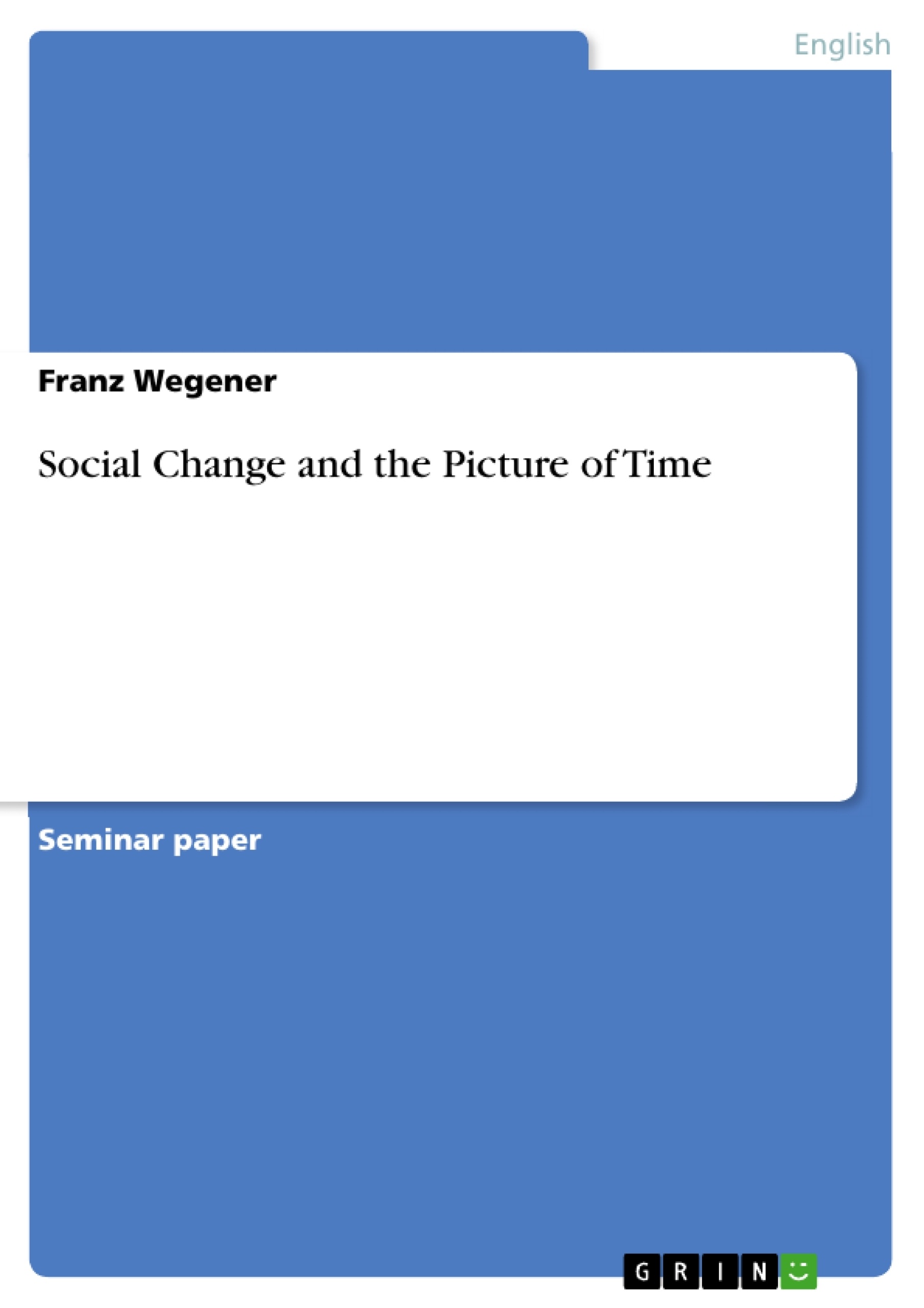The organization of time is not merely a matter of managing tasks, but also closely related to the notion of time prevalent in a certain culture. This explains why pictures of time increasing its pace occur in western societies even though neither the days nor the lives of people become shorter. In this work, it is shown that the notion of time is affiliated with specific moral values influencing the way things are handled and the things people strive for. Through an examination of the different concepts of time prevalent in the Middle Ages and in the late eighteenth century (specifically Hegel's philosophy of time), specific moral values of these societies are revealed. These moral values strongly influence decision making in short-term as well as in long-term issues. They inspire the goals people have for their lives and they affect the management of everyday life activities. This work also uses these cultures as examples of how to make this connection between the notion of time, the morality, the living conditions and the way specific issues are dealt with.
Inhaltsverzeichnis (Table of Contents)
- Introduction
- Models of Time
- Time in the Medieval Society
- The Concept of Time
- The Concept of Time in World History
- The Concept of Time in Life
- Moral Values Connected to Time
- Summary
- The Concept of Time
- Time at the Advent of the Industrial Revolution
- The Concept of Time in the Late Eighteenth Century
- Moral Values of the Late Eighteenth Century in Connection with Time
- Summary
- Time in the Medieval Society
- Conclusion
Zielsetzung und Themenschwerpunkte (Objectives and Key Themes)
This essay investigates the relationship between social change and the perception of time, particularly focusing on the differences in the understanding of time during the Middle Ages and the advent of the Industrial Revolution. It aims to demonstrate how these contrasting perceptions of time were connected to the prevailing moral values and societal structures of each era.
- The impact of social change on the perception of time.
- The relationship between time and moral values in different societies.
- The influence of theories of time on societal perceptions.
- The comparison of time perceptions in the Middle Ages and the late 18th century.
- The significance of societal structures in shaping the understanding of time.
Zusammenfassung der Kapitel (Chapter Summaries)
- Introduction: This chapter introduces the idea that the perceived speed of time has changed, and explores possible reasons for this phenomenon. It raises the question of whether the perception of time itself is shifting, and highlights the importance of understanding different notions of time in various historical periods.
- Models of Time: This chapter presents a framework for understanding theories of time, emphasizing that they are grounded in assumptions about the course of societal development. It argues that the perception of time is intertwined with moral values regarding progress and conservatism.
- Time in the Medieval Society: This chapter explores the medieval concept of time, examining its connection to world history and individual life. It also delves into the moral values associated with time during this period, including its connection to religious beliefs and social structures.
- Time at the Advent of the Industrial Revolution: This chapter focuses on the perception of time during the late 18th century, exploring its transformation due to the rise of industrialization and new scientific insights. It analyzes the changing moral values associated with time, emphasizing the importance of efficiency and progress.
Schlüsselwörter (Keywords)
The main keywords and focus topics include social change, perception of time, moral values, Middle Ages, Industrial Revolution, theories of time, societal development, progress, conservatism, historical analysis, and cultural perspectives.
Frequently Asked Questions
How does social change affect the perception of time?
Social change shifts cultural assumptions about progress and development, which in turn alters how quickly time is perceived to pass and how it is managed.
What was the concept of time in Medieval society?
Medieval time was closely tied to religious beliefs, world history, and social structures, often focusing on stability and tradition rather than rapid progress.
How did the Industrial Revolution change the notion of time?
With industrialization, time became associated with efficiency, productivity, and scientific progress, leading to the perception of time "speeding up."
What is the connection between time and moral values?
The way a society handles time reflects its values, such as the importance of tradition (conservatism) versus the drive for constant improvement (progress).
Which philosopher's concept of time is specifically examined?
The work examines Hegel's philosophy of time as a key concept for understanding the shift in the late eighteenth century.
Why do people in Western societies feel that days are becoming shorter?
This is not due to actual shorter days, but to a cultural notion of time that demands a faster pace of life and constant task management.
- Quote paper
- Franz Wegener (Author), 2005, Social Change and the Picture of Time , Munich, GRIN Verlag, https://www.grin.com/document/56158



